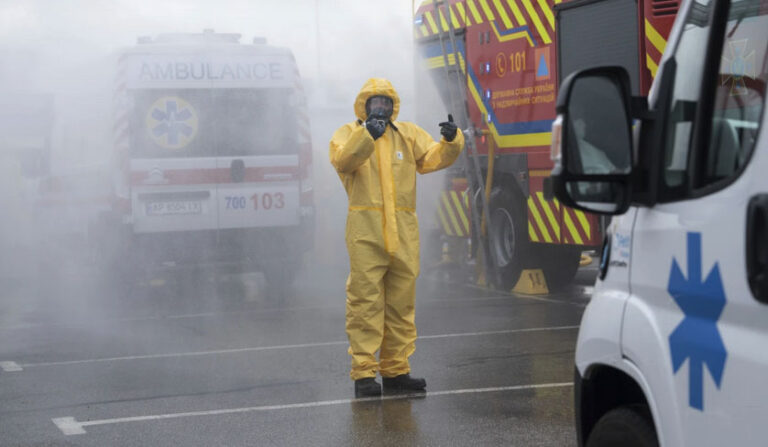Proposed resolutions in Congress call for potential collective response from NATO while US Mayors group acknowledges global nuclear threats and need for end to war
by Kerul Dyer for Clear Actions News
Recent developments in the Russia-Ukraine War escalated into even more of a major global conflict of historic proportions this week. This includes Putin’s movement of tactical nuclear weapons from Russia into Belarus, along with the steady flow of weapons, tanks and munitions into Ukraine. Meanwhile, the leader of a far right mercenary army vowed to challenge President Vladamir Putin’s authority with a brief in-country rebellion. That action was resolved just before the group reached Moscow by a Belarus-brokered deal between the Wagner Group and Putin. The leader of the mutiny attempt, Yevgeny Prigozhin, is also known as “General Armageddon” for his brutal assault on Aleppo in Syria.
These recent events have led officials in the US Congress, NATO, the United Nations and even US cities to pass resolutions in response. These new initiatives go further than the sanctions, commitments of support and massive military aid from the US and other NATO countries. From the civic sector, we see calls for strengthening and renewing global nuclear use treaties to reduce the risk of nuclear war and disaster. The resolution paints a clearer picture of what many people already understand: the war in Ukraine is a proxy war between the US, NATO, and Russia.
The US government continues to seek ways to bolster material support for Ukraine and tighten sanctions on Russian industries, including the Wagner group. Now members of Congress are setting forward a path for what could become direct US military engagement with Russia, through their leading role in NATO. To this end, Senators Lindsey Graham (R-South Carolina) and Richard Blumenthal (D-Connecticut) introduced a resolution last week. The resolution seeks to create conditions for the use of Article 5, a collective response of the NATO charter. It clarifies that any use of tactical nuclear weapons (like those sent to Belarus) – and any nuclear contamination of NATO territories (through the destruction of a facility like Zaporizhzhia) would be considered a direct attack on NATO. Importantly, any such action would justify the use of a collective NATO military response.
The heightened risk of a nuclear disaster has elevated to Cold War levels and many leaders have expressed grave concern. In the United States this week, the US Conference of Mayors (USCM) adopted a resolution calling for “Urgent Action to Avoid Nuclear War, Resolve the Ukraine Conflict, Lower Tensions with China, and Redirect Military Spending to Meet Human Needs.”
The Mayors’ resolution “condemns Russia’s illegal war of aggression on Ukraine and its repeated nuclear threats.” The text of the resolution, that was introduced by Mayors for Peace, also calls on the U.S. government to “work to re-establish high-level U.S.-Russian risk reduction and arms control talks to rebuild trust and work toward replacement of the Strategic Arms Reduction Treaty.”


